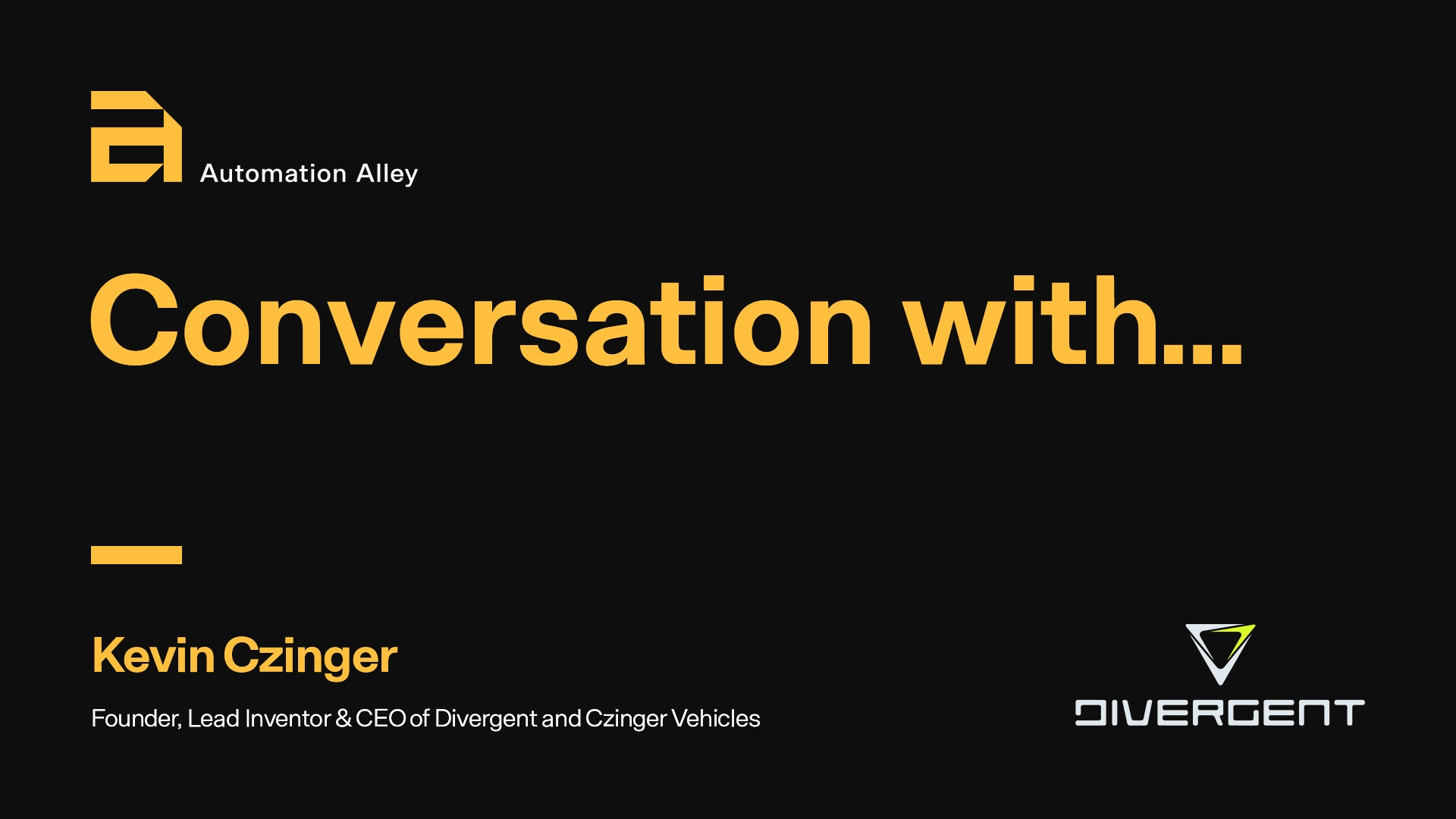Check out last weeks episode here.
The bellow video transcript was created using artificial intelligence and may contain grammatical errors.
00;00;06;10 – 00;00;30;25
Speaker 1
When you look at distributed manufacturing and for it to take off, we we identified four enablers where the US Center for Advanced Manufacturing in partnership with the World Economic Forum. We’re seeing what’s happening around the world. We think there’s four enablers. There’s digital rights management. We have to build a framework around how IP is protected as files are zinging all over in this distributed environment.
00;00;31;09 – 00;00;52;08
Speaker 1
Digital Identity Management. So when you send a file to somebody I know it’s your printer in your office cabin or your production facility, and that’s secured. Of course, quality control and traceability, that’s a given. That’s what we talk about when we talk about additive and distributed, how you handle quality control. And the last is universal product manufacturing recipes.
00;00;52;14 – 00;01;11;25
Speaker 1
So you can have multiple vendors. That’s what we’re working on. Would you agree with our with the way we’re viewing the world and what we should be working on is as a global convener, is there anything we’ve missed? What do you think we should be working on that really gets us home as an industry?
00;01;12;24 – 00;01;57;16
Speaker 2
Tom I would say that the I think that the formula with those set of elements makes sense for distributed manufacturing. I’d say as it relates to what Divergent is, obviously we’re within our own business. Our business model is going to be a factory as a service where we own and operate these facilities. So say your big auto company A in in Europe, your licensing, if you want to design and build using our system, you’re licensing as a SAS application, our design software.
00;01;58;05 – 00;02;28;00
Speaker 2
And then that’s only license if you’re going to also take capacity on a system that’s regionalized or localized. So, you know, in in Europe, you could have a facility in a part of Europe where there’s a cluster of auto manufacturing, and it could be serving multiple auto manufacturers who license that software and then use that print and assemble capacity.
00;02;28;09 – 00;03;02;06
Speaker 2
When you’re talking about the key to adoption, it’s driving down that cost curve. So if you think about Amazon Web Services and the cloud, they were able to drive down costs by themselves, designing and scaling the infrastructure. We will drive down costs by continuing to version our print and assembly infrastructure. So we’re using a model which is not kind of it’s distributed only in the sense that we’re distributing that divergent factor as well.
00;03;02;07 – 00;03;29;18
Speaker 1
So what you’re saying is you’re solving the district, the distributed manufacturing problem by by offering factory as a service. Once you offer factories a service, digital rights management is solved. Digital identity is quality. Control is the universal product manufacturing recipe solve because you’re controlling that that facility and that facility grows big enough that it’s handling all of the distribution, if you will, from OEMs to this facility.
00;03;29;18 – 00;03;34;15
Speaker 1
So you’re tackling it in a scale way, which that’s spot on.
00;03;34;17 – 00;04;11;02
Speaker 2
And obviously for that manufacturing, you know, you’re locating increasing numbers of factories. And I would say two things. One is an analogy. You know, this is like Amazon Web service infrastructure, but instead of memory and processing, it’s manufacturing and assembly, but it’s digital, you know, just fungible, dynamic capacity that can serve multiple companies and multiple industries in a given region.
00;04;11;14 – 00;04;45;16
Speaker 2
And you know, what’s key is as you’re scaling up. So if you look at what our volume agreements are with third party contract manufacturers and other people for our equipment, obviously we’re ordering, you know, tens and then hundreds of machines to to print and assemble structures. And it’s coming down that curve. And it’s also our being able to do it where all of this has an architecture where we own the software elements that are versioning it.
00;04;46;17 – 00;05;20;12
Speaker 1
Awesome. Hey, thank you, Kevin. This was awesome. This is a pivotal moment in time for the automotive industry. And we’re delighted you could join us today to help the automation ecosystem here in Michigan really understand what’s coming. You know, we’re trying to the blare, the trumpets to say change is upon us and you’re either going to survive it and thrive because you, one of the people that understands this transition or you’re going to go away, quite simply, you’re just going to go away because the world is changing.
00;05;20;13 – 00;05;26;01
Speaker 1
So thank you. Kevin, I so appreciate your time today. And I loved the conversation. Thank you.
00;05;26;18 – 00;05;29;05
Speaker 2
It was my pleasure, Tom. Thanks so much for inviting me.
Automation Alley is a World Economic Forum Advanced Manufacturing Hub (AMHUB) for North America and a nonprofit Industry 4.0 knowledge center with a global outlook and a regional focus. We facilitate public-private partnerships by connecting industry, education and government to fuel Michigan's economy.




